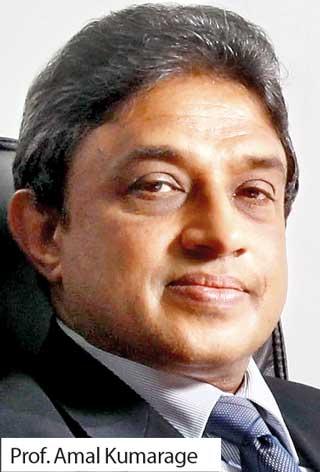12 May 2023 - {{hitsCtrl.values.hits}}
As Sri Lanka’s public transport system is not developed enough to cater to the growing demand, a key priority should be to uplift the country’s bus infrastructure, a top transport expert in the country said.
 Efforts must be taken to change the bus regulatory model, to bring in private investment so that the infrastructure can be modernised and deliver higher service quality, he pointed out.
Efforts must be taken to change the bus regulatory model, to bring in private investment so that the infrastructure can be modernised and deliver higher service quality, he pointed out.
“We need to change the way in which we operate buses. Many countries operate buses successfully. We have lost that because we have a bad regulatory model,” said
Amal Kumarage, Senior Professor, Department of Transport Management and Logistics Engineering at University of Moratuwa.
He made these remarks while addressing a public seminar which discussed moving away from project-driven to policy-based public transport development for Sri Lanka.
Kumarage said the government must explore the option of negotiating with Japanese International Cooperation Agency (JICA) to divert financing for a light rail transit (LRT) that may again come Sri Lanka’s way towards bus infrastructure development, and railway electrification and modernisation.
Ideally, in Colombo, at least 65 percent of commuters should opt for public transport, according to Kumarage.
“Promoting public transport in Sri Lanka is one of the most difficult tasks since everyone desires or has been told that driving a car is the pinnacle of personal and national success,” he quipped.
Asserting that addressing the issues in the bus infrastructure is not the only solution for Sri Lanka’s public transportation problems, Kumarage pointed out the need for an integrated transport solution that uses all modes of transport, including private transport.
“The reason I say buses should be a priority for investment is because they are much easier to turn around. There is a greater opportunity for private investment in those areas than in railway,” he noted.
Over the years, Sri Lanka’s bus transportation system has been plagued by many issues including overcrowding, inadequate fleet and maintenance, poor service frequency and reliability, limited coverage, inefficient route planning, lack of accessibility, poor enforcement of safety measures, and lack of standardised ticketing system and fare collection practices.
23 Dec 2024 36 minute ago
23 Dec 2024 49 minute ago
23 Dec 2024 1 hours ago
23 Dec 2024 1 hours ago
23 Dec 2024 2 hours ago